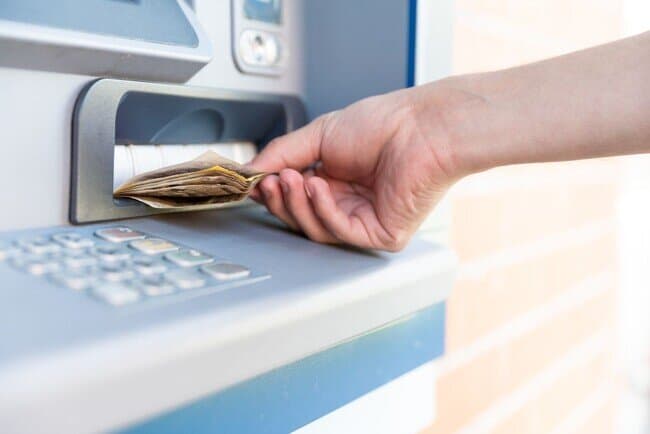It can be frustrating when checking your balance and you do not see something you recognize. Let alone if it is something jeopardizing your positive amount. So, lets check out why a bank calls it miscellaneous.
Miscellaneous Withdrawal is a term used in Banking and it is categorized as different transactions but individualized charges. Infrequent or small transactions not defined or characterized. Those transactions are tagged as miscellaneous, and often identified using “TRANSACTION CODES” in some banks.
Although you can see the label “Miscellaneous Withdrawal”, they are simply service charges in disguise. Also, there are some types of accounts where miscellaneous withdrawals are mandatory for transactions. If you see this label in your check, don’t be shocked unless there is a huge transaction. In that case, you should check it with your bank and sort it out.
Debit and Credit: A Simple Breakdown
In case you want to know what is the definition of Bank Debit and Credit, we’ll give a short explanation. Suppose, you are the bank account holder and you have withdrawn some of your possession from the account. It is called Bank Debit.
Bank credit means you are borrowing a certain amount of money from the bank. In other words, it is like a loan. How much money you will be given by the bank depends on the reliability of yours.
Having a bank account can be a great tool for handling anyone’s own finance. That’s why people create accounts like Deposit or Savings accounts. Finally, When you open a bank account, the bank provides the same document where Miscellaneous Withdrawal Lurk as Service Charge.

A Savings Account is usually opened to earn or to save and to roll over funds as interest is earned on itself. There are times when it determines the purpose of opening the saving account. In other words, it answers the question of why you opened up a savings account. That’s why If you withdraw these funds, Miscellaneous Withdraw will be placed.
Charges That Can Show As Miscellaneous Withdraw In Accounts
Below are a list of some charges that may show at your bank as a miscellaneous withdraw, of course depending on your bank.
- Account Maintenance Fees: These are not regular transactions like purchases or ATM withdrawals, so they might be grouped under miscellaneous.
- Non-Bank ATM Fees: Since these fees are associated with ATM usage but are not direct ATM withdrawals, they can be categorized as miscellaneous.
- Overdraft Fees: These fees are related to account management rather than specific transactions, making them miscellaneous in nature.
- Foreign Transaction Fees: These are additional charges on top of regular transactions, hence not fitting into standard transaction categories.
- Wire Transfer Fees: While related to a specific transfer type, these fees are separate from the actual transfer amount, thus falling under miscellaneous.
- Returned Item Fees: These are penalty fees, not regular account activities, and are therefore often categorized as miscellaneous.
- Paper Statement Fees: As a service charge unrelated to account transactions, it’s often labeled miscellaneous.
- Account Inactivity Fees: These fees are charged based on account status, not transactional activity, making them miscellaneous.
- Lost Card Replacement Fees: This is a service charge unrelated to your account’s transactional activity.
- Legal or Administrative Fees: These are charges for services that are not part of everyday banking transactions.
- Check Processing Fees: Fees for specific services like check processing are often categorized separately from regular transactions.
- Safe Deposit Box Rental: This is a charge for a banking service, not a direct withdrawal or deposit.
- Inter-account Transfer Fees: These fees are specific to the service of transferring funds and don’t fit into regular deposit or withdrawal categories.
- Excess Transaction Fees: Charged for exceeding a transaction limit, these are not standard transaction fees.
- Early Account Closure Fees: These are penalty fees for closing an account, not regular transactional activities.
I have found Most times it shows as “miscellaneous” until the next business day. Then the account is reconciled on the banks side they label correctly in many banks.
Should You Trust Your Bank?
In the intricate world of banking, trust plays a pivotal role. However, as an account holder, it’s crucial to approach banking with a healthy dose of vigilance. While banks are generally reliable and secure, they are not infallible. Mistakes can happen, and sometimes, policies and fees are not as transparent as they should be. Click here to learn about Disputing Unauthorized Transactions

It’s essential to remember that in many scenarios, banking laws and regulations tend to favor the institutions. This reality underscores the importance of consumers being proactive. Regularly reviewing account statements, tracking transactions, and being aware of the fees and charges applied to your account are not just good practices; they are necessary for financial self-defense.
In essence, while you can generally trust your bank to handle your money responsibly, it’s wise to remember the old adage: “Trust, but verify.” Your financial well-being may depend more on your vigilance than on the bank’s benevolence.
Frequently Asked Questions
PNC miscellaneous withdrawal means any transaction that has not yet been done but the bank knows about it. Pending withdrawal is something that will be done in the future whereas withdrawal means a transaction that is done immediately.
Miscellaneous withdrawals are basically service charges for normal saving accounts but sometimes it is necessary for certain accounts.
Miscellaneous Withdrawals are identified using “TRANSACTION CODES” in some banks. When one withdraws small types of transactions, they will be like a journal entry and these small transactions are called misc. debit withdrawal.
With a focus on consumer clarity, Samuel Smith helps you decode “miscellaneous withdrawal” and protect your money.


